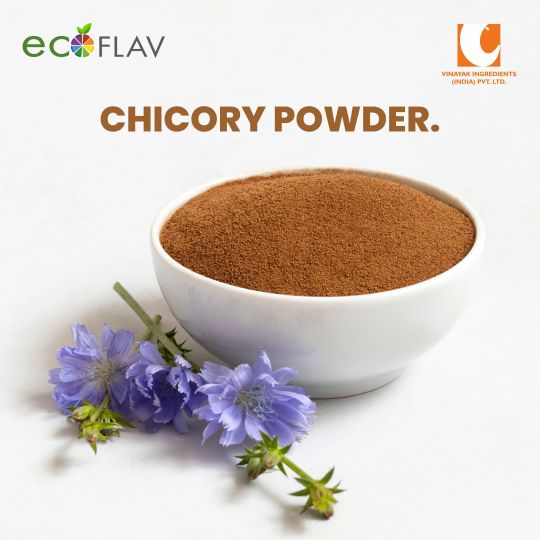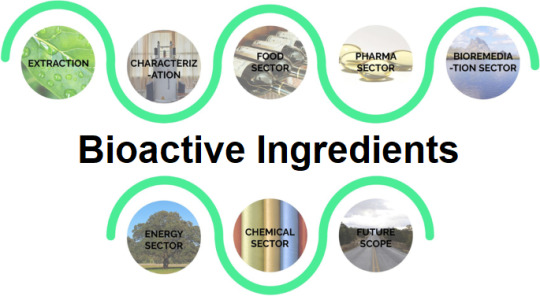#phytochemicals
Text
5 Healthy Korean Desserts and Their Health Benefits
When it comes to satisfying your sweet tooth without compromising on health, exploring the world of healthy Korean desserts is a delightful journey. Let’s explore the five guilt-free treats that not only please your taste buds but also contribute to your overall well-being.
1. Bingsu (Shaved Ice Dessert)
Bingsu, a popular Korean shaved ice dessert, goes beyond its refreshing taste. Packed with…

View On WordPress
#anticancer#antioxidant#bingsu#desserts#diet#fruits#Health#healthyfood#healthyfruit#healthylife#korean#nutrition#phytochemicals
5 notes
·
View notes
Text
#fiber#phytochemicals#alkaloids#carotenoids#vitamin_c#immunology#recipes#healthy#healthyrecipes#recetas#saludables#recetasaludables
4 notes
·
View notes
Link
#Botanicals#Phytochemicals#Ethanolic crude#Ethanol leaf extracts#Momordica#Moringa#Tabernaemontana#Mollugo
1 note
·
View note
Text

Within the unassuming roots of the chicory plant lies a treasure trove of phytochemicals, offering a myriad of health benefits and culinary possibilities. Among these compounds, inulin shines as a prominent player, constituting a significant portion of chicory's nutritional profile. However, the richness of chicory roots extends far beyond inulin, encompassing a diverse array of phytochemicals that contribute to its unique flavor profile and therapeutic properties.
0 notes
Text
Bioactive Ingredients: A Deep Dive into Growth Factors and Competitive Strategies
The global bioactive ingredients market size is expected to reach USD 317.90 billion by 2030, registering a CAGR of 7.9% over the forecast period, as per the new report by Grand View Research, Inc. The growth is majorly driven by the increasing demand for functional food and beverages owing to increasing awareness among people regarding healthy living. Furthermore, the increasing use of beauty care products owing to rising disposable income and improving the standard of living is fueling the product demand. Bioactive ingredients are a set of essential substances produced by natural sources, such as plants and animals, as they are not synthesized by the human body. There are two types of ingredients, namely, essential and non-essential.

Bioactive Ingredients Market Report Highlights
The omega 3 PUFA segment is estimated to have the fastest CAGR from 2023 to 2030 owing to their high vitamin, protein, and mineral content and application in the treatment of diseases, such as cancer, asthma, and depression
The omega-3 fatty acids help lower the risk of abnormal heartbeats or arrhythmias. Furthermore, it helps lower triglyceride levels & blood pressure and slow atherosclerotic plaque growth
The dietary supplements application segment will witness the highest growth rate from 2023 to 2030 due to the increasing awareness regarding the benefits of dietary supplements
Asia Pacific is expected to witness the fastest CAGR over the forecast period due to the growing aging population and high demand for functional foods & drinks and dietary supplements
The market is highly competitive due to the presence of a large number of manufacturing companies
For More Details or Sample Copy please visit link @: Bioactive Ingredients Market Report
The unconsumed parts of fruits and vegetables contain essential nutrients, which are extracted and further used by food and pharmaceutical manufacturers for the production of functional foods and medicines. The industry offers growth opportunities to manufacturers owing to increasing product usage in dietary supplements. Moreover, the product is extensively used in the development of personal care products, such as shampoos, soaps, and moisturizers. Bioactive ingredients, such as carotenoids, flavonoids, and polyphenols, protect the skin from negative environmental effects, such as pollution. These ingredients also act as antiaging, anti-wrinkling, and whitening agents, as well as offer UV protection.
Asia Pacific is expected to drive the product demand in food products owing to the rising consumer disposable income, rapid globalization, and changing lifestyle in the region. Moreover, growing awareness among consumers in countries, such as China, India, Indonesia, Malaysia, and Japan, about the product benefits will spur its demand in the food & beverages sector. During the pandemic, functional food & beverage manufacturers reported colossal demand for food products that contain natural content. Consumers adopted healthy foods that provide extra nutritional benefits to strengthen immunity due to the rising COVID-19 cases. Thus, F&B manufacturers shifted their focus to the production of functional foods & beverages. This, In turn, augmented the product demand.
#BioactiveIngredients#Nutraceuticals#FunctionalFoods#HealthSupplements#NaturalProducts#Phytochemicals#Biotechnology#NutritionIndustry#FoodScience#DietarySupplements
0 notes
Text
In one experiment, certain chemicals of a water-stressed plant – which are different to a non-stressed plant – were shown to pass into the cells of the human gut.
"Soil: The incredible story of what keeps the earth, and us, healthy" - Matthew Evans
#book quote#soil#matthew evans#nonfiction#experiment#science experiments#chemicals#stressed#water stress#phytochemicals#human gut
0 notes
Link
Benefits of Phytonutrients Phytonutrients, also known as phytochemicals, are natural compounds found in plants that have numerous health benefits for humans. These compounds are responsible for the vibrant colors of fruits and vegetables and play a crucial role in protecting plants from various threats such as UV radiation, pests, and diseases. When consumed by humans, phytonutrients exhibit powerful antioxidant and anti-inflammatory properties, promoting overall well-being and reducing the risk of chronic diseases. The Role of Phytonutrients in Human Health Phytonutrients offer a wide range of health benefits, including: Antioxidant Protection Many phytonutrients act as antioxidants, neutralizing harmful free radicals in the body. Free radicals are unstable molecules that can cause oxidative stress, leading to cellular damage and increasing the risk of chronic diseases such as cancer, heart disease, and neurodegenerative disorders. By consuming phytonutrient-rich foods, you can bolster your body's natural defense system and reduce the risk of these diseases. Anti-Inflammatory Effects Chronic inflammation is a common underlying factor in various health conditions, including arthritis, cardiovascular disease, and certain types of cancer. Phytonutrients possess anti-inflammatory properties that help reduce inflammation and prevent the progression of these diseases. Incorporating phytonutrient-rich foods into your diet can promote a healthy inflammatory response and support overall wellness. Immune System Support Phytonutrients play a crucial role in supporting a robust immune system. They enhance the production and activity of immune cells, helping your body fight off infections and diseases. Additionally, some phytonutrients have antimicrobial properties, protecting against harmful bacteria, viruses, and fungi. Cardiovascular Health Several phytonutrients have been linked to improved cardiovascular health. They help lower blood pressure, reduce cholesterol levels, and prevent the formation of blood clots. By including phytonutrient-rich foods in your diet, such as berries, leafy greens, and nuts, you can promote heart health and reduce the risk of heart disease. Cancer Prevention Phytonutrients have shown promising effects in preventing certain types of cancer. They can inhibit the growth of cancer cells, reduce inflammation, and enhance the body's natural defense mechanisms against tumor development. While phytonutrients alone cannot guarantee protection against cancer, incorporating them into a balanced diet can significantly reduce the risk. Phytonutrient-Rich Foods To reap the benefits of phytonutrients, it's important to include a variety of colorful fruits, vegetables, herbs, and spices in your diet. Here are some examples of phytonutrient-rich foods: Dark leafy greens: Spinach, kale, Swiss chard Berries: Blueberries, strawberries, raspberries Citrus fruits: Oranges, lemons, grapefruits Cruciferous vegetables: Broccoli, cauliflower, Brussels sprouts Tomatoes Carrots Garlic Ginger Turmeric Green tea [caption id="attachment_81360" align="aligncenter" width="900"] benefits of phytonutrients[/caption] Incorporating phytonutrient-rich foods into your diet can provide numerous health benefits. From antioxidant protection to immune system support and cancer prevention, these natural compounds play a vital role in promoting overall well-being. By embracing a diet rich in colorful fruits, vegetables, herbs, and spices, you can harness the power of phytonutrients and optimize your health. Frequently Asked Questions about the Benefits of Phytonutrients 1. What are phytonutrients? Phytonutrients are natural compounds found in plants that have various health benefits for humans. 2. What are the main sources of phytonutrients? Phytonutrients are abundant in fruits, vegetables, whole grains, legumes, nuts, and seeds. 3. What are the potential benefits of consuming phytonutrients? Consuming phytonutrients may help reduce the risk of chronic diseases, such as heart disease, cancer, and diabetes. They also support overall health and immune function. 4. How do phytonutrients contribute to heart health? Phytonutrients can help lower blood pressure, reduce inflammation, improve blood circulation, and support healthy cholesterol levels, all of which are crucial for maintaining heart health. 5. Can phytonutrients help prevent cancer? Some phytonutrients possess antioxidant and anti-inflammatory properties that may help protect against certain types of cancer by neutralizing harmful free radicals and inhibiting the growth of cancer cells. 6. Do phytonutrients have any anti-aging effects? Yes, certain phytonutrients have been found to have anti-aging effects by protecting cells from oxidative damage, promoting collagen production, and enhancing skin health. 7. Are there specific phytonutrients that support brain health? Yes, some phytonutrients, such as flavonoids and omega-3 fatty acids, have been linked to improved cognitive function, and memory, and reduced risk of neurodegenerative diseases like Alzheimer's. 8. Can phytonutrients help with weight management? Phytonutrients can aid in weight management by promoting satiety, boosting metabolism, reducing inflammation, and supporting a healthy gut microbiome. 9. Are there any side effects of consuming phytonutrients? Phytonutrients are generally safe when consumed through whole foods. However, excessive supplementation may have adverse effects or interact with certain medications, so it's best to consult a healthcare professional. 10. How can I incorporate more phytonutrients into my diet? You can increase your phytonutrient intake by consuming a diverse range of colorful fruits, vegetables, whole grains, and legumes. It's also recommended to eat them raw or lightly cooked to maximize their nutritional benefits.
#anti_inflammatory_compounds#antioxidant_compounds#bioactive_compounds#disease_fighting_compounds#health_promoting_substances#immune_boosting_compounds#natural_compounds#nutritional_compounds#phytochemicals#plant_chemicals#plant_compounds#plant_nutrients#plant_based_compounds#plant_based_nutrients#protective_compounds#wellness_enhancing_substances
0 notes
Text
FOOD SCIENCE
Acid reactions affect chlorophyll. Acid released from veggies when cooking. Chlorophyll converts to pheophytin in acidity. Occurs when green veggies are left on steam table for too long (turns olive green).
Alkaline reactions convert chlorophyll to chlorophyllin.
Alkalinity softens cellulose (e.g. adding baking soda to green beans or green veggies will make them mushy, but they turn bright green). Water soluble vitamins lost in alkaline solution.
Yellow and orange pigments due to carotenoids. Carotenoids insoluble in H2O. Very little effect on carotenoids in alkaline and acidic solutions.
Lycopene (also an antioxidant) responsible for red pigments in tomatoes and watermelon.
Flavonoids: anthocyanins (e.g. cranberries), anthoxanthins
Red, blue, and purple pigments due to anthocyanins. Anthocyanins are soluble in H2O, turn bright red in acid solution, and blue-ish in alkalinity.
White pigments are due to anthoxanthins, which are water soluble, colorless when slightly acidic, and yellow in alkalinity.
Onions may turn yellow when cooked in an aluminum pan.
Grading of canned foods done by the USDA.
#dietetics#alkalinity#acidity#food science#phytochemicals#anthocyanin#anthoxanthin#polyphenol#lycopene
1 note
·
View note
Text
The Benefits of a Vegetarian Diet in Fighting Cancer
// PINTEREST
https://tinyurl.com/thgpin
// INSTAGRAM
https://tinyurl.com/thgins
// TWITTER
https://tinyurl.com/thgtwt
// YOUTUBE
https://tinyurl.com/thgtube
// SOUNDCLOUD
https://tinyurl.com/thgpod
The Benefits of a Vegetarian Diet in Fighting Cancer
Are you considering switching to a vegetarian diet? There are many health benefits to eating more plant-based foods, including a lower risk of developing cancer. In this blog post, we’ll explore the scientific evidence behind the cancer-fighting benefits of a vegetarian diet.
A vegetarian diet has become increasingly popular in recent years,…

View On WordPress
#American Institute for Cancer Research recommendations#Cancer prevention through diet#Cancer prevention through plant-based foods#colon cancer#egetarian diet#esophageal cancer#fiber#Fiber and blood sugar levels#Fiber and cancer risk#Fiber and cholesterol levels#Fiber in plant-based foods#Fiber-rich foods for cancer prevention#lower risk of developing cancer#Meat consumption and cancer risk#Meat consumption and colon cancer risk#Meat consumption and esophageal cancer risk#Phytochemical-rich foods for cancer prevention#phytochemicals#Phytochemicals and cancer prevention#Phytochemicals in plant-based foods#Plant-based diet and lower cancer risk#Plant-based diet recommendations#plant-based foods#Plant-based foods and bowel management#Plant-based foods and cancer risk#Plant-based foods and immune system#Plant-based foods for cancer prevention#processed meat#Processed meat and cancer risk#Processed meat and colon cancer
0 notes
Text
In vitro and in vivo antimicrobial activity of an active plant-based quadrocomplex for skin hygiene
Image: Flickr
Article published in J. Pharm. Pharmacogn. Res., vol. 10, no. 5, pp. 905-921, September-October 2022.
DOI: https://doi.org/10.56499/jppres22.1452_10.5.905
Viktor A. Filatov1,2*, Olesya Yu. Kulyak1, Elena I. Kalenikova1
1Department of Pharmaceutical Chemistry, Pharmacognosy and Organization of Pharmaceutical Business, Faculty of Basic Medicine, M. V. Lomonosov Moscow State…

View On WordPress
#antimicrobial agents#drug synergism#Gram-negative pathogens#Gram-positive pathogens#phytochemicals#skin microbiota
0 notes
Video
youtube
Phytochemicals and Immunity
1 note
·
View note
Text
Ayurvedic Wisdom: Holistic Approach for Fatty Liver
Are you concerned about fatty liver? Ayurveda, a traditional Indian system of medicine, offers a holistic and time-tested approach to addressing this condition. By focusing on balancing the body’s doshas, adjusting your diet, and incorporating herbal remedies, Ayurvedic practices have been proven to be effective in combating fatty liver. In this article, we will delve deeper into the mechanism…

View On WordPress
#anticancer#antioxidant#diet#fatty liver#fruits#gut microbiota#Health#healthyfood#healthyfruit#healthylife#liver health#nutrition#omega-3 fatty acids#phytochemicals
0 notes
Text
#carotenoids#flavonoids#phytochemicals#nutrients#antioxidants#green_tea#black_tea#ginkgo_biloba#bioactive_compounds#obesity#diabetes#cholesterol#hypertension#antifungal#bactericide#food_of_the_future#pea#algae#chickpeas#yogurt#kimchi#microbiome#blueberries#currant#chia#açaí#acai#avocado#oily_fish#anchovies
1 note
·
View note
Link
.
0 notes
Text
The Power of Chicory: Inulin & More
Chicory, often regarded as a humble weed, holds within its roots a potent arsenal of health-promoting compounds that have been utilized for centuries in traditional medicine and culinary practices. Among these compounds, inulin takes center stage, comprising a significant portion of chicory's nutritional profile. However, the benefits of chicory extend far beyond inulin alone, encompassing a diverse array of phytochemicals that contribute to its remarkable therapeutic properties.
Inulin, a type of soluble fiber and prebiotic, plays a pivotal role in supporting digestive health by nourishing beneficial gut bacteria and promoting regularity. Its unique structure, consisting of chains of fructose molecules, also makes it an excellent dietary component for individuals seeking to manage blood sugar levels and improve insulin sensitivity.
Beyond its role as a prebiotic fiber, inulin has garnered attention for its potential to modulate immune function, reduce inflammation, and promote weight management. Studies have suggested that inulin supplementation may enhance immune response, alleviate symptoms of inflammatory conditions such as arthritis, and contribute to satiety, thereby aiding in weight loss efforts.
However, inulin is just one piece of the puzzle when it comes to the health benefits of chicory. This versatile plant is also rich in various other phytochemicals, including flavonoids, coumarins, tannins, alkaloids, and volatile oils, each contributing its unique set of therapeutic properties.
Flavonoids, renowned for their antioxidant and anti-inflammatory effects, offer protection against oxidative stress and chronic inflammation, thereby reducing the risk of chronic diseases such as cardiovascular disease and cancer. Coumarins, another class of phytochemicals found in chicory, have been studied for their potential anticoagulant, anti-inflammatory, and antimicrobial properties.
Tannins, responsible for chicory's bitter taste, possess antimicrobial properties and may aid in digestion by promoting the breakdown of dietary proteins. Alkaloids found in chicory roots have been investigated for their analgesic, antimicrobial, and potentially anticancer effects. Meanwhile, volatile oils contribute to chicory's distinctive aroma and may have antimicrobial and anti-inflammatory properties.
Incorporating chicory into the diet can be as simple as brewing chicory root tea or adding chicory leaves to salads and cooked dishes. Additionally, chicory root extracts are commonly used as natural flavorings or sweeteners in various food products.
While the health benefits of chicory are abundant, it's essential to consume it in moderation, especially for individuals with digestive sensitivities. Excessive consumption of inulin-rich foods may cause gastrointestinal discomfort, including bloating and flatulence, in some individuals.
For more information visit us:
#chicory#Inulin#Phytochemicals#Prebiotics#Dietary fiber#Health benefits#Nutrition#Plant-based nutrition#Digestive health#Antioxidants#Anti-inflammatory#Natural remedies
0 notes
Photo

💯 Love our #liver! ❤️ 好好爱护 #肝脏! #hovenia_dulcis #oriental_raisin_tree #phytochemicals #health #nutrition #枳椇子 #植物营养素 #健康 #营养 (at Singapore / Singapura / 新加坡 / சிங்கப்பூர்) https://www.instagram.com/p/CnvlTIQOCjW/?igshid=NGJjMDIxMWI=
1 note
·
View note